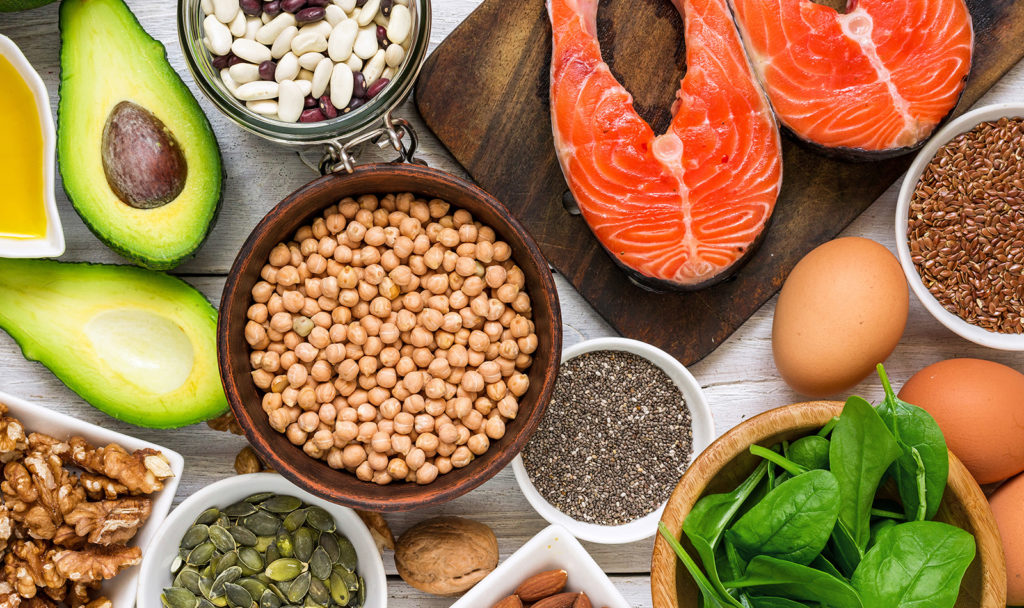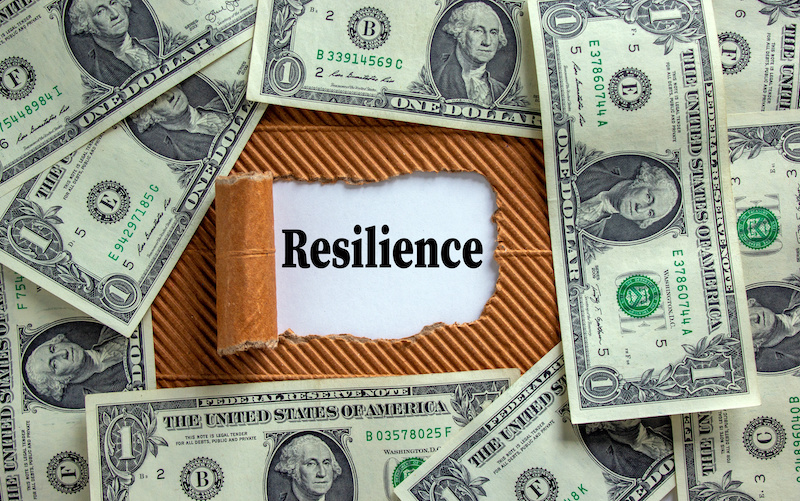Why Fret About Fats?
Nancy Beth JacksonMarch 4, 2019

Food rich in omega 3 fatty acid and healthy fats by Samael334 via Adobe Stock
Why fret about fat in our diets?
Fat is not a bad word for Dr. Karen Koffler, who heads up the Osher Center for Integrative Medicine at the University of Miami.
We need fats to keep our brains healthy, to absorb nutrients and to give us that nice feeling of being satiated, she says.
Fat got a bad rap back in 1992 when the U.S. Department of Agriculture introduced the highly publicized “Eating Right Pyramid,” which was high on carbohydrates and extremely low on fat. It changed how people looked at eating and led to a whole host of no-fat and low-fat products. Dr. Koffler maintains the food pyramid was built on two faulty assumptions: 1) Eat fat, gain fat; 2) All calories are created equal.
Despite cutting back on fat, the average American man weighs 15 pounds more today than he did 20 years ago. The average American woman is 17 pounds heavier. As of 2016, 40 percent of U.S. adults and 19 percent of youth were obese, according to the Centers for Disease Control and Prevention.
“The less fat we ate, the more carbs we ate. The more carbs we ate, the fatter and more diabetic we became,” she says. “We have created the problem.”
Dr. Koffler dispelled other common dietary notions in a recent Life Enhancement Forum at the Key Biscayne Community Center.
Take oils. Or actually, pitch most of the oils in your kitchen, including canola, soybean, vegetable and corn oils. “It is better to cook with coconut oil, avocado oil, lard, butter and olive oil,” she maintains. Note: the Crisco of childhood chocolate chip cookie recipes is made from vegetable oils, not animal fat.
And then there are the essential fatty acids Omega 3 and Omega 6, both playing important roles in our health. Historically, the ratio between Omega 6 to Omega 3 was 4 to 1. Now it is all out of whack because of the spike in consumption of prepared, fried and snack foods, all high in Omega 6.
Omega 3 fish oil supplements long have been touted for health benefits. The real question is the balance between Omega 3 and Omega 6. Studies show Omega 3 has no benefits if we have too much Omega 6 in our diets, Dr. Koffler cautions.
To achieve the right balance, cut out processed, fried and fast foods and eat more fish like salmon, anchovies and trout. Pasture-raised meat, chia seeds, ground flaxseed and egg yolks are also good sources of Omega 3, she suggests.
Sardines turn out to be a stellar way of upping Omega 3 levels.
“If you can’t stand the taste, use lots of mustard,” Dr. Koffler advises.


